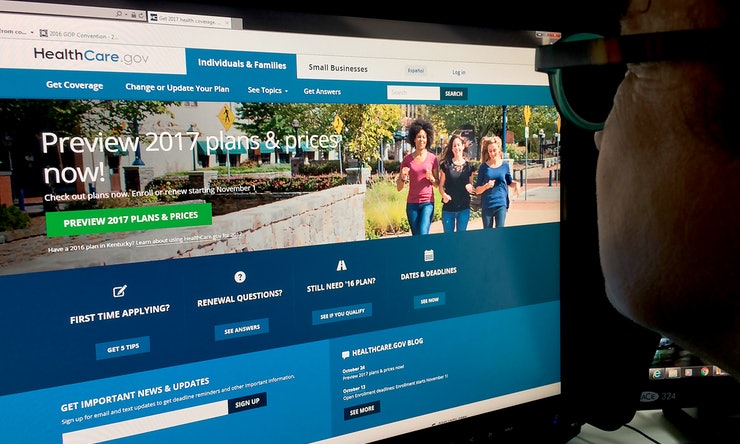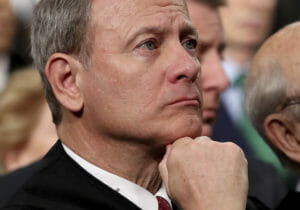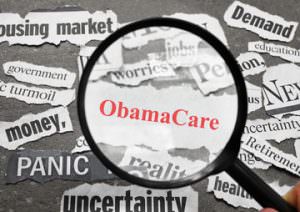ACA Site to Undergo Maintenance During Open Enrollment
The move seems, to many, an intentional attack on the public's ability to enroll for coverage under the Affordable Care Act. Karen Bleier / Getty Images
Karen Bleier / Getty Images
After Sen. John McCain, R-Ariz., announced Friday that he will not vote for the Graham-Cassidy health care bill, the bill is likely to die, since the GOP has only a two-vote margin for passage in the Senate, and Sens. Rand Paul, R-Ky., and Susan Collins, R-Maine, have already expressed serious reservations about supporting it.
The Trump administration plans to cut the period of enrollment for coverage under the Affordable Care Act from 95 to 45 days, slash the advertising budget by 90 percent and cut back on the in-person “navigators” who help people sign up for a plan. Most recently, it was announced that the Obamacare website will be down for maintenance during open enrollment.
According to a webinar that the Department of Health and Human Services conducted for marketplace assisters, the health care website will undergo maintenance from 12 a.m. to 12 p.m. every Sunday during the shortened enrollment period.
Obama admin. officials I’ve talked to briefly say this is abnormal, that there was way less maintenance last year.
— Sarah Kliff (@sarahkliff) September 22, 2017
Linda Blumberg, a senior fellow at the Urban Institute, said this decision for reduced hours on top of that hurts people with inflexible work schedules and limited access to Internet and services.
“That’s the height of irresponsibility,” Blumberg said. “It’s just one more thing to create difficulty for people to be able to access the insurers they need through the law as it was written.”
As Congress continues to struggle to pass legislation that would repeal and replace the Affordable Care Act, Trump has suggested he would “let Obamacare fail.”
“We’re not going to own it. I’m not going to own it. I can tell you the Republicans are not going to own it,” he said after the Senate’s last failed attempt in July.
Advocates and policy experts say the administration has since taken steps that chip away at the law. In July, the Trump administration decided to end assistance contracts with 18 cities, decreasing the amount of help available to people who may have questions while signing up for health insurance.
The slashes in outreach and site availability could have real repercussions, given that health insurance depends on a stable risk pool—a balance between healthy and sick people buying insurance. This means that people who fall ill are subsidized by healthy people who are also paying premiums. With fewer outreach programs and reduced site availability, one risk is that a significantly smaller number of healthy people will sign up for care—since those who are sick are likely to sign up regardless—and this could lead to higher premiums.
President Trump has expressed a desire to “let Obamacare implode,” despite polls that show increased support for the ACA since he took office. Additionally, the Congressional Budget Office has said that uncertainty about the fate of the law will likely lead to a 15 percent spike in health care premiums.
PBS has this to say about the risks of the Trump administration’s tactics:
Reduced outreach could contribute to fewer new enrollees for health insurance exchanges but also a drop in beneficiaries for Medicaid, children’s health insurance programs and more because people often find out they’re eligible for multiple services when applying for one.
Most people window shop for their individual insurance plans and don’t purchase until the last minute, said Thomas Miller, a research fellow with the American Enterprise Institute. But HHS should be transparent about why these website updates are a good thing, he said.
“You need to go out of your way to explain how this is actually going to be helpful rather than feed into suspicions that will just derail the process” of scaling back Obamacare, Miller said.
A strategy that helps to sabotage the ACA will probably not bode well for the president politically. A poll from the Kaiser Family Foundation in April found that voters would blame Republicans if Obamacare fails.
Your support is crucial.....@HHSGov plans to shut down @HHSGov for 12 hours during all but one Sunday during the upcoming 6 week open enrollment season pic.twitter.com/0d5WUtLc9G
— Phil Galewitz (@philgalewitz) September 22, 2017
As we navigate an uncertain 2025, with a new administration questioning press freedoms, the risks are clear: our ability to report freely is under threat.
Your tax-deductible donation enables us to dig deeper, delivering fearless investigative reporting and analysis that exposes the reality beneath the headlines — without compromise.
Now is the time to take action. Stand with our courageous journalists. Donate today to protect a free press, uphold democracy and uncover the stories that need to be told.






You need to be a supporter to comment.
There are currently no responses to this article.
Be the first to respond.